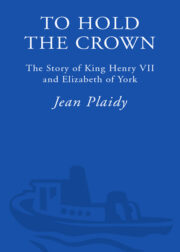The following day Thomas Tyrrell was found guilty of treason but his sentence was delayed and finally he was freed and his estates were not confiscated.
John Dighton, who had been named as one of the men who had taken an active part in that mysterious murder, was not hanged but kept in the Tower. After a while he was freed although he too was alleged to have confessed to his share in the murder of the Princes.
Nothing had been written down about the confession, but a few weeks after the death of Tyrrell the King let it be known that Sir James Tyrrell had made a confession that the Princes had been murdered in the Tower on the orders of Richard the Third and that Tyrrell and his manservants had played a part in it.
The news was gradually allowed to seep out, almost as though no great effort was made to bring it to the notice of the people.
John Dighton, who had made a lucky escape from death, was one of those chosen to circulate the story, which he did.
Lord William de la Pole and Lord William Courtenay remained the King’s prisoners; but Suffolk, the leader of the hoped-for insurrection, was merely exiled to Aix.
The King liked it to be known that he was not vindictive. It was not the will of a just king to shed blood in anger. He wanted all men to know—and this was an obvious truth—that he only did so when expediency demanded that he should. If a person was a menace to the Crown—and the Crown of course meant Henry—then it was often wiser to remove that man. He did not want revenge. He wanted peace and prosperity during his reign. It was what he strove for. He wanted a secure throne for his House and that was the best thing possible for England.
In time people began to accept the story of the death of the Princes in the Tower. They had been murdered by Richard the Third who was emerging as something of a monster. It was amazing how little interest people felt for what did not actually concern themselves. No one picked up any discrepancies in the story. No one asked for instance why that good honest man Brackenbury, who was alleged openly to have refused to help his master commit murder, should have continued to be the friend of the King whom he had admired and beside whom he died fighting at Bosworth. No one asked why Tyrrell should have been the one to lose his head when he had played no part—at the least a very small one—in Suffolk’s treason and why Suffolk should get off with exile.
Nobody cared very much. Nobody wanted risings and rebellions. The Princes were dead. Murdered by their wicked uncle. It had all happened long ago and most people who were concerned in it were dead.
Birth and Death
“He has enough anxieties apart from worrying about me,” she confided to her sister, Lady Katharine Courtenay, who had troubles of her own for her husband had been in the Tower in captivity since his complicity in the Suffolk case.


"To Hold the Crown: The Story of King Henry VII and Elizabeth of York" отзывы
Отзывы читателей о книге "To Hold the Crown: The Story of King Henry VII and Elizabeth of York". Читайте комментарии и мнения людей о произведении.
Понравилась книга? Поделитесь впечатлениями - оставьте Ваш отзыв и расскажите о книге "To Hold the Crown: The Story of King Henry VII and Elizabeth of York" друзьям в соцсетях.